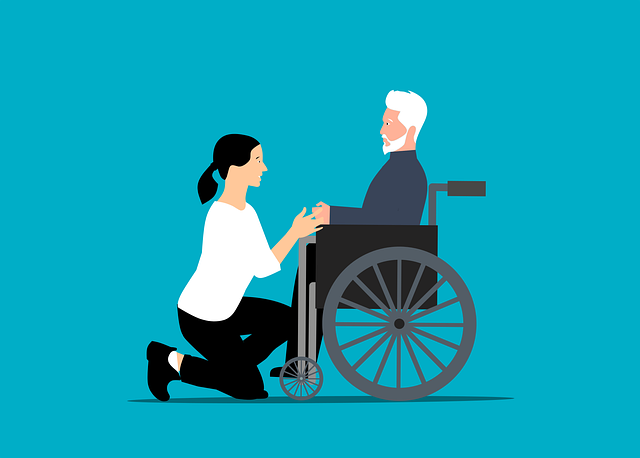Oregon's child welfare system is supported by a robust network of legal support services designed to protect and nurture at-risk children. Understanding this intricate system, including rights and responsibilities, is crucial for parents. Key organizations like Oregon Law Help (OLH) and the Children's Defense Fund (CDF) offer free or low-cost legal assistance based on state criteria, focusing on those with financial or critical issues. Legal Aid Services, pro bono programs, and community workshops empower families to navigate complex legal matters, ensuring fair outcomes, protecting parental rights, and improving long-term prospects for vulnerable children.
Oregon’s child welfare system is a complex network designed to protect and support vulnerable children. Understanding the legal framework underpinning this system is crucial for ensuring the rights of both children and families are upheld. This article explores Oregon’s child welfare laws and highlights the importance of legal support resources, delving into eligibility criteria, key service providers, available resource types, and a step-by-step guide to accessing these services. Through case studies, we demonstrate the significant impact of effective legal interventions in Oregon’s child welfare system.
- Understanding Oregon's Child Welfare System and Legal Framework
- Identifying Eligibility Criteria for Legal Support Services
- Key Organizations Providing Legal Aid to Children and Families
- Types of Legal Support Resources Available in Oregon
- Navigating the Process: Accessing Legal Services for Child Welfare Cases
- Case Studies: Successful Legal Interventions in Oregon's Child Welfare System
Understanding Oregon's Child Welfare System and Legal Framework

Oregon’s child welfare system is designed to protect and nurture at-risk children while ensuring their well-being and stability. The state has a comprehensive legal framework in place, with various laws and regulations governing child protection, fostering, adoption, and other related services. Understanding this intricate system is crucial for both parents and guardians involved in the process, as it outlines their rights and obligations.
Legal support services play a vital role in Oregon’s child welfare landscape, offering guidance and assistance to families navigating these complex legal matters. These services ensure that all parties have access to information and representation, promoting fair outcomes for children and families alike. From initial investigations to court proceedings, legal aid helps protect the rights of parents, fosters stability during transitions, and ultimately contributes to positive long-term outcomes for youth in care.
Identifying Eligibility Criteria for Legal Support Services

Identifying eligibility criteria for legal support services is a crucial step in ensuring access to justice for families involved in Oregon’s child welfare system. These services are designed to provide legal assistance, representation, and guidance to parents, guardians, and other individuals affected by child protective proceedings. To be eligible, individuals must meet specific requirements set forth by the state and local legal aid organizations.
Key factors include income levels, residency status, and the nature of their involvement in child welfare cases. Legal support services often prioritize those with limited financial means who cannot afford private legal representation. They may also offer assistance based on the complexity of the case, ensuring that individuals facing critical issues or challenging circumstances receive adequate support. Understanding these eligibility criteria is essential for connecting the right support to those who need it most within Oregon’s child welfare system.
Key Organizations Providing Legal Aid to Children and Families

In Oregon, several key organizations play a vital role in providing legal aid and support services to children and families involved in child welfare proceedings. These groups are dedicated to ensuring that all parties have access to justice and are protected by their rights. One such organization is the Oregon Law Help (OLH), which offers free and confidential legal advice to low-income individuals, including families facing child welfare issues. OLH provides a range of services, from answering legal questions to representing clients in court.
Another significant player is the Children’s Defense Fund (CDF) of Oregon, an advocacy organization committed to improving the well-being of children. They offer legal assistance and representation to vulnerable youth and their families, focusing on cases related to foster care, adoption, and termination of parental rights. CDF Oregon also educates and empowers parents to understand their legal options, ensuring a fair and just outcome for all involved. These organizations collectively strive to navigate the complex legal landscape, providing much-needed support to children and families within the child welfare system.
Types of Legal Support Resources Available in Oregon

In Oregon, a robust network of legal support resources is dedicated to enhancing and ensuring fair practices within the child welfare system. These services encompass a wide range of offerings tailored to assist families, caregivers, and guardians involved in child protective proceedings. One prominent source is the Legal Aid Services, which provide free or low-cost legal representation for eligible individuals. Their expertise covers various aspects of child welfare law, enabling them to offer guidance on removal of children from homes, dependency cases, termination of parental rights, and adoption processes.
Additionally, Oregon’s judicial system has established pro bono programs where qualified attorneys volunteer their services to those who cannot afford legal counsel. These initiatives ensure that all parties involved in child welfare cases have access to legal representation. Furthermore, local community organizations and non-profit groups offer educational workshops, legal clinics, and advocacy programs, empowering parents with knowledge about their rights and obligations under Oregon’s child welfare laws.
Navigating the Process: Accessing Legal Services for Child Welfare Cases

Navigating the complex world of child welfare law can be challenging for parents and guardians involved in cases with Oregon’s Department of Human Services (DHS). Accessing appropriate legal support services is a crucial step to ensure fair representation and understanding of one’s rights during this process. The first step is identifying the available resources; many non-profit organizations and legal clinics offer pro bono or low-cost legal assistance specifically for child welfare matters.
These legal support services cater to various needs, from explaining case procedures to providing representation in court. They can guide parents through the often confusing paperwork and hearings, ensuring their voices are heard and their rights protected. With dedicated legal aid, families can navigate this intricate system with confidence, knowing they have the necessary tools to advocate for themselves and their children’s best interests.
Case Studies: Successful Legal Interventions in Oregon's Child Welfare System

In Oregon, successful legal interventions within the child welfare system often highlight the critical role played by specialized legal support services. These services have been instrumental in ensuring that the rights of both children and families are protected, while also promoting fair and just outcomes. Case studies demonstrate that timely and effective legal representation can significantly impact cases, leading to better placements, reduced durations in foster care, and improved long-term prospects for children involved in dependency proceedings.
Legal support services in Oregon have achieved notable successes by providing proactive assistance to vulnerable families. These interventions range from representing parents during hearings to advocating for appropriate resources and services that can prevent removal of children from their homes. By leveraging legal strategies and knowledge, these services not only defend against unwarranted allegations but also work towards systemic changes, ensuring a more equitable and responsive child welfare system.
